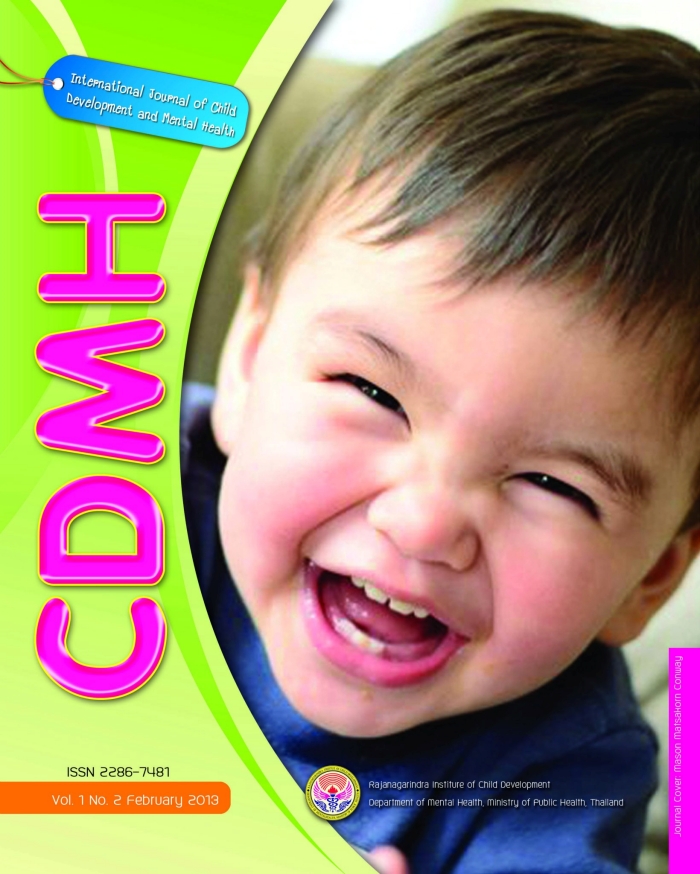Relationships between Internet Addiction and Loneliness, and Internet Addiction and Teenage Social Skills: A Case Study of Mathayom Suksa Students in the Northern Region
Main Article Content
Abstract
This study looks at the Relationships between Internet Addiction and Loneliness, and
Internet Addiction and Teenage Social Skills: A Case Study of Mathayom Suksa Students in the Northern Region. This study aims to describe the relationships of internet addiction and lonely teenagers, and internet addiction and social skills of teenage students from 8 provinces in the upper northern region. This study used quantitative research methodology by collecting data from 400 questionnaires and qualitative research methodology
by collecting data from the focus group to verify the study results. This study found that Internet Addicts (AD) were 14.75 percent of the sample. It is also found correlations between internet addiction and loneliness as AD correlated to Possible Loneliness at the positive coefficient (R=.158; P ≤.01), but differed significantly in the negative coefficient to
Not Lonely (R=-.137; P ≤.01). In studying the relationship between AD and social skills, it found that AD correlated to Social Skills in negative behaviors as: Aggressiveness/ Antisocial Behavior (F=28.061; P≤.05), Conceit/ Haughtiness (F=17.017; P≤.05) and Loneliness/ Soci al Anxi et y ( F=23. 603; P≤. 05) at the positive coeffici ent. Nevertheless, in the relationship between AD and social skills, AD did not significantly correlate to positive behavior as Social Skills and Assertiveness.
Article Details
The authors retain copyright and permit the journal the copyright of first publication
Articles, once having passed the review process and accepted for publication in the CDMH Journal, are copyrighted under the CDMH Journal, Department of Mental Health, Ministry of Public Health. Please be aware distribution of CDMH Journal content for commercial purposes without permission is expressly prohibited. However, distribution with intent to educate, advocate, or spread awareness within the general public and research communities is permitted and encouraged with the understanding that the CDMH Journal Editorial Board do not hold jurisdiction or liability for any accompanying comments, text, or information from third parties, either in favor for or against the original article’s assertions, conclusions, methodology, or content.


